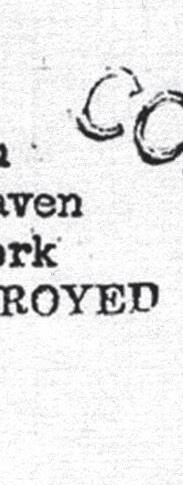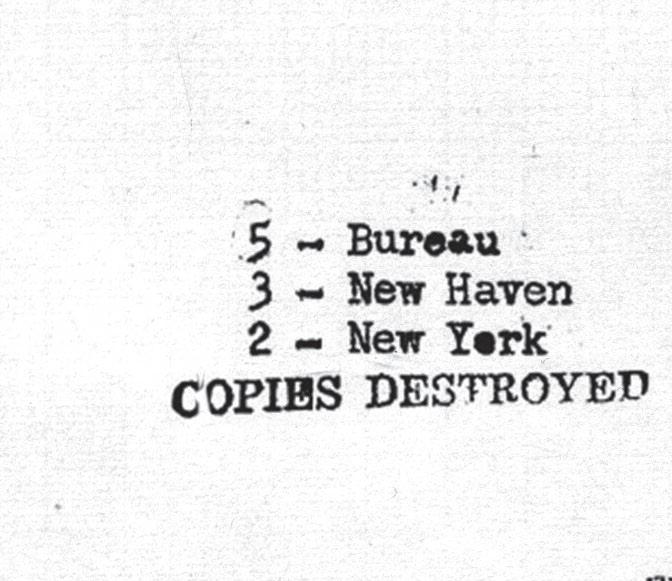





In 1993, James Patterson wrote Along Came a Spider, which introduced the world to Alex Cross, a young detective working out of Washington, DC. Idealistic and courageous, Cross’s deep love for his family gives him the strength to overcome the many forms of evil he confronts in his life and work. Since then, every Alex Cross thriller has been an international bestseller. Along Came a Spider is the first novel in this extraordinary series.
James Patterson is the author of other bestselling series, including the Women’s Murder Club, Detective Michael Bennett and Private novels. He has written many other number one bestsellers including collaborations with President Bill Clinton and Dolly Parton, stand-alone thrillers and non-fiction. James has donated millions in grants to independent bookshops and has been the most borrowed adult author in UK libraries for the past fourteen years in a row. He lives in Florida with his family.
‘It’s no mystery why James Patterson is the world’s most popular thriller writer. Simply put: nobody does it better.’
‘No one gets this big without amazing natural storytelling talent – which is what Jim has, in spades. The Alex Cross series proves it.’
‘James Patterson is the gold standard by which all others are judged.’
‘Alex Cross is one of the best-written heroes in American fiction.’
‘Twenty years after the first Alex Cross story, he has become one of the greatest fictional detectives of all time, a character for the ages.’
‘Alex Cross is a legend.’
‘Patterson boils a scene down to the single, telling detail, the element that defines a character or moves a plot along. It’s what fires off the movie projector in the reader’s mind.’
‘James Patterson is The Boss. End of.’
Physical description:
Physical description: ==================
Alex Cross is 6 foot 3 inches (190cm), and weighs 196 lbs (89 kg).
He is African American, with an athletic build.
Family history:
Family history: ================







Alex Cross is 6 foot 3 inches (190cm), and weighs 196 lbs (89 kg). He is African American, with an athletic build.








Cross was raised by his grandmother, Regina Cross Hope - known as Nana Mama - following the death of his mother and his father's subsequent descent into alcoholism. He moved to D.C. from Winston-Salem, North Carolina, to live with Nana Mama when he was ten.
Cross was raised by his grandmother, Regina Cross Hope - known as Nana Mama - following the death of his mother and his father's subsequent descent into alcoholism. He moved to D.C. from Winston-Salem, North Carolina, to live with Nana Mama when he was ten.
Relationship history: ====================
Relationship history: ====================
Cross was previously married to Maria, mother to his children Damon and Janelle, however she was tragically killed in a drive-by shooting. Cross has another son, Alex Jr., with Christine Johnson.
Cross was previously married to Maria, mother to his children Damon and Janelle, however she was tragically killed in a drive-by shooting. Cross has another son, Alex Jr., with Christine Johnson. He is now married to Detective Brianna (Bree) Stone, who was recently appointed Chief of Detectives for the Metro Police Department.
Education:
Education:
=========
=========




Cross has a PhD in psychology from Johns Hopkins University in Baltimore, Maryland, with a special concentration in the field of abnormal psychology and forensic psychology.
Cross has a PhD in psychology from Johns Hopkins University in Baltimore, Maryland, with a special concentration in the field of abnormal psychology and forensic psychology.
Employment: ==========
Employment:
==========

Cross works as a psychologist in a private practice, based in his home. He also consults for the Major Case Squad of the Metro Police Department, where he previously worked as a psychologist for the Homicide and Major Crimes team.
Cross works as a psychologist in a private practice, based in his home. He also consults for the Major Case Squad of the Metro Police Department, where he previously worked as a psychologist for the Homicide and Major Crimes team.
A loving father, Cross is never happier than when spending time with his family. He is also a dedicated member of his community and often volunteers at his local parish and soup kitchen. When not working in the practice or consulting for MPD, he enjoys playing classical music on the piano, reading, and teaching his children how to box.
A loving father, Cross is never happier than when spending time with his family. He is also a dedicated member of his community and often volunteers at his local parish and soup kitchen. When not working in the practice or consulting for MPD, he enjoys playing classical music on the piano, reading, and teaching his children how to box.
















Rock Creek

George Washington University Hospital
The White House

Washington Monument


Lincoln Memorial





West Potomac Park
Martin Luther King, Jr Memorial
Tidal Basin

Franklin Delano Roosevelt Memorial















Thomas Jefferson Memorial












East Potomac Park

































































































A
list of titles by James Patterson appears at the back of this book


PENGUIN BOOK S
UK | USA | Canada | Ireland | Australia
India | New Zealand | South Africa
Penguin Books is part of the Penguin Random House group of companies whose addresses can be found at global.penguinrandomhouse.com.
First published in the UK by HarperCollins Publishers in 1993
This edition first published by Arrow Books in 2017
Published in Penguin Books 2024 001
Copyright © James Patterson 1993
Excerpt from Kiss The Girls © James Patterson 1995
The moral right of the author has been asserted
This is a work of fiction. All characters and descriptions of events are the products of the author’s imagination and any resemblance to actual persons is entirely coincidental
Set in 11/15 pt ITC Berkeley Oldstyle Std Typeset by Jouve (UK), Milton Keynes
Printed and bound in Great Britain by Clays Ltd, Elcograf S.p.A.
The authorised representative in the EEA is Penguin Random House Ireland, Morrison Chambers, 32 Nassau Street, Dublin D02 YH68
A CIP catalogue record for this book is available from the British Library
ISBN: 978–1–787–46972–3
Penguin Random House is committed to a sustainable future for our business, our readers and our planet. This book is made from Forest Stewardship Council® certified paper.
New Jersey, near Princeton; March 1932
THE CHARLES LINDBERGH farmhouse glowed with bright, orangish lights. It looked like a fiery castle, especially in that gloomy, fir-wooded region of Jersey. Shreds of misty fog touched the boy as he moved closer and closer to his first moment of real glory, his first kill.
It was pitch- dark and the grounds were soggy and muddy and thick with puddles. He had anticipated as much. He’d planned for everything, including the weather.
He wore a size nine man’s work boot. The toe and heel of the boots were stuffed with torn cloth and strips of the Philadelphia Inquirer.
He wanted to leave footprints, plenty of footprints. A man’s footprints. Not the prints of a twelve-year- old boy. They would
lead from the county highway called the Stoutsburg-Wertsville Road, up to, then back from, the farmhouse.
He began to shiver as he reached a stand of pines, not thirty yards from the sprawling house. The mansion was just as grand as he’d imagined: seven bedrooms and four baths on the second floor alone. Lucky Lindy and Anne Morrow’s place in the country.
Cool beans, he thought.
The boy inched closer and closer toward the dining-room window. He was fascinated by this condition known as fame He thought a lot about it. Almost all the time. What was fame really like? How did it smell? How did it taste? What did fame look like close up?
“The most popular and glamorous man in the world” was right there sitting at the table. Charles Lindbergh was tall, elegant, and fabulously golden haired, with a fair complexion. “Lucky Lindy” truly seemed above everyone else.
So did his wife, Anne Morrow Lindbergh. Anne had short hair. It was curly and black, and it made her skin look chalky white. The light from the candles on the table appeared to be dancing around her.
Both of them sat very straight in their chairs. Yes, they certainly looked superior, as if they were God’s special gifts to the world. They kept their heads high, delicately eating their food. He strained to see what was on the table. It looked like lamb chops on their perfect china.
“I’ll be more famous than either of you pitiful stiffs,” the boy finally whispered. He promised that to himself. Every detail had been thought through a thousand times, at least that often. He very methodically went to work.
The boy retrieved a wooden ladder left near the garage by
working men. Holding the ladder tightly against his side, he moved toward a spot just beyond the library window. He climbed silently up to the nursery. His pulse was racing, and his heart was pounding so loud he could hear it.
Light cast from a hallway lamp illuminated the baby’s room. He could see the crib and the snoozing little prince in it. Charles Jr., “the most famous child on earth.”
On one side, to keep away drafts, was a colorful screen with illustrations of barnyard animals.
He felt sly and cunning. “Here comes Mr. Fox,” the boy whispered as he quietly slid open the window.
Then he took another step up the ladder and was inside the nursery at last.
Standing over the crib, he stared at the princeling. Curls of golden hair like his father’s, but fat. Charles Jr. was gone to fat at only twenty months.
The boy could no longer control himself. Hot tears streamed from his eyes. His whole body began to shake, from frustration and rage— only mixed with the most incredible joy of his life.
“Well, daddy’s little man. It’s our time now,” he muttered to himself.
He took a tiny rubber ball with an attached elastic band from his pocket. He quickly slipped the odd-looking looped device over Charles Jr.’s head, just as the small blue eyes opened.
As the baby started to cry, the boy plopped the rubber ball right into the little drooly mouth. He reached down into the crib and took Baby Lindbergh into his arms and went swiftly back down the ladder. All according to plan.
The boy ran back across the muddy fields with the precious,
struggling bundle in his arms and disappeared into the darkness.
Less than two miles from the farmhouse, he buried the spoiled-rotten Lindbergh baby— buried him alive.
That was only the start of things to come. After all, he was only a boy himself.
He, not Bruno Richard Hauptmann, was the Lindbergh baby kidnapper. He had done it all by himself.
Cool beans.
EARLY ON THE MORNING of December 21, 1992, I was the picture of contentment on the sun porch of our house on 5th Street in Washington, D.C. The small, narrow room was cluttered with mildewing winter coats, work boots, and wounded children’s toys. I couldn’t have cared less. This was home.
I was playing Gershwin on our slightly out- of-tune, formerly grand piano. It was just past 5 a . m ., and cold as a meat locker on the porch. I was prepared to sacrifice a little for “An American in Paris.”
The phone jangled in the kitchen. Maybe I’d won the D.C ., or Virginia, or Maryland lottery and they’d forgotten to call the night before. I play all three games of misfortune regularly.
“Nana? Can you get that?” I called from the porch.
“It’s for you. You might as well get it yourself,” my testy grandmother called back. “No sense me gettin’ up, too. No sense means nonsense in my dictionary.”
That’s not exactly what was said, but it went something like that. It always does.
I hobbled into the kitchen, sidestepping more toys on morning-stiff legs. I was thirty- eight at the time. As the saying goes, if I’d known I was going to live that long, I would have taken better care of myself.
The call turned out to be from my partner in crime, John Sampson. Sampson knew I’d be up. Sampson knows me better than my own kids.
“Mornin’, brown sugar. You up, aren’t you?” he said. No other I.D. was necessary. Sampson and I have been best friends since we were nine years old and took up shoplifting at Park’s Corner Variety store near the projects. At the time, we had no idea that old Park would have shot us dead over a pilfered pack of Chesterfields. Nana Mama would have done even worse to us if she’d known about our crime spree.
“If I wasn’t up, I am now,” I said into the phone receiver. “Tell me something good.”
“There’s been another murder. Looks like our boy again,” Sampson said. “They’re waitin’ on us. Half the free world’s there already.”
“It’s too early in the morning to see the meat wagon,” I muttered. I could feel my stomach rolling. This wasn’t the way I wanted the day to start. “Shit. Fuck me.”
Nana Mama looked up from her steaming tea and runny eggs. She shot me one of her sanctimonious, lady- of-the-house looks. She was already dressed for school, where she still does volunteer work at seventy-nine. Sampson continued to give me gory details about the day’s first homicides.
“Watch your language, Alex,” Nana said. “Please watch your language so long as you’re planning to live in this house.”
“I’ll be there in about ten minutes,” I told Sampson. “I own this house,” I said to Nana.
She groaned as if she were hearing that terrible news for the first time.
“There’s been another bad murder over in Langley Terrace. It looks like a thrill killer. I’m afraid that it is,” I told her.
“That’s too bad,” Nana Mama said to me. Her soft brown eyes grabbed mine and held. Her white hair looked like one of the doilies she puts on all our living-room chairs. “That’s such a bad part of what the politicians have let become a deplorable city. Sometimes I think we ought to move out of Washington, Alex.”
“Sometimes I think the same thing,” I said, “but we’ll probably tough it out.”
“Yes, black people always do. We persevere. We always suffer in silence.”
“Not always in silence,” I said to her.
I had already decided to wear my old Harris Tweed jacket. It was a murder day, and that meant I’d be seeing white people. Over the sport coat, I put on my Georgetown warm-up jacket. It goes better with the neighborhood.
On the bureau, by the bed, was a picture of Maria Cross. Three years before, my wife had been murdered in a drive-by shooting. That murder, like the majority of murders in Southeast, had never been solved.
I kissed my grandmother on the way out the kitchen door. We’ve done that since I was eight years old. We also say good-bye, just in case we never see each other again. It’s been like that for almost thirty years, ever since Nana Mama first took me in and decided she could make something of me.
She made a homicide detective, with a doctorate in psychology, who works and lives in the ghettos of Washington, D.C.
I AM OFFICIALLY a Deputy Chief of Detectives, which, in the words of Shakespeare and Mr. Faulkner is a lot of sound and fury, signifying nada. The title should make me the number- six or -seven person in the Washington Police Department. It doesn’t. People wait for my appearance at crime scenes in D.C., though.
A trio of D.C. Metro blue-and-whites were parked helterskelter in front of 41-15 Benning Road. A crime-lab van with blackened windows had arrived. So had an EMS ambulance.
MORTUARY was cheerfully stenciled on the door.
There were a couple of fire engines at the murder house. The neighborhood’s ambulance- chasers, mostly eye-fucking males, were hanging around. Older women with winter coats thrown over their pajamas and nightgowns, and pink and blue curlers in their hair, were up on their porches shivering in the cold.
The row house was dilapidated clapboard, painted a gaudy
Caribbean blue. An old Chevette with a broken, taped-up side window looked as if it had been abandoned in the driveway.
“Fuck this. Let’s go back to bed,” Sampson said. “I just remembered what this is going to be like. I hate this job lately.”
“I love my work, love Homicide,” I said with a sneer. “See that? There’s the M.E. already in his plastic suit. And there are the crime-lab boys. And who’s this coming our way now?”
A white sergeant in a puffy blue-black parka with a fur collar came waddling up to Sampson and me as we approached the house. Both his hands were jammed in his pockets for warmth.
“Sampson? Uh, Detective Cross?” The sergeant cracked his lower jaw the way some people do when they’re trying to clear their ears in airplanes. He knew exactly who we were. He knew we were S.I.T. He was busting our chops.
“Wuz up, man?” Sampson doesn’t like his chops being busted very much.
“Senior Detective Sampson” I answered the sergeant. “I’m Deputy Chief Cross.”
The sergeant was a jelly-roll-belly Irish type, probably left over from the Civil War. His face looked like a wedding cake left out in the rain. He didn’t seem to be buying my tweed jacket ensemble.
“Everybody’s freezin’ their toches off,” he wheezed. “That’s wuz up.”
“You could probably lose a little of them toches,” Sampson advised him. “Might give Jenny Craig a call.”
“Fuck you,” said the sergeant. It was nice to meet the white Eddie Murphy.
“Master of the riposte.” Sampson grinned at me. “You hear what he said? Fuck you?”
Sampson and I are both physical. We work out at the gym attached to St. Anthony’s— St. A’s. Together, we weigh about five hundred pounds. We can intimidate, if we want to. Sometimes it’s necessary in our line of work.
I’m only six three. John is six nine and growing. He always wears Wayfarer sunglasses. Sometimes he wears a raggy Kangol hat, or a yellow bandanna. Some people call him “John-John” because he’s so big he could be two Johns.
We walked past the sergeant toward the murder house. Our elite task force team is supposed to be above this kind of confrontation. Sometimes we are.
A couple of uniforms had already been inside the house. A nervous neighbor had called the precinct around four-thirty. She thought she’d spotted a prowler. The woman had been up with the night-jitters. It comes with the neighborhood.
The two uniformed patrolmen found three bodies inside. When they called it in, they were instructed to wait for the Special Investigator Team. S.I.T. It’s made up of eight black officers supposedly slated for better things in the department.
The outside door to the kitchen was ajar. I pushed it all the way open. The doors of every house have a unique sound when they open and close. This one whined like an old man.
It was pitch-black in the house. Eerie. The wind was sucked through the open door, and I could hear something rattling inside.
“We didn’t turn on the lights, sir,” one of the uniforms said from behind me. “You’re Dr. Cross, right?”
I nodded. “Was the kitchen door open when you came?” I turned to the patrolman. He was white, baby-faced, growing a little mustache to compensate for it. He was probably
twenty-three or twenty-four, frightened that morning. I couldn’t blame him.
“Uh. No. No sign of forced entry. It was unlocked, sir.”
The patrolman was very nervous. “It’s a real bad mess in there, sir. It’s a family.”
One of the patrolmen switched on a powerful milledaluminum flashlight and we all peered inside the kitchen.
There was a cheap Formica breakfast table with matching lime green vinyl chairs. A black Bart Simpson clock was on one wall. It was the kind you see in the front windows of all the People’s drugstores. The smells of Lysol and burnt grease melded into something strange to the nose, though not entirely unpleasant. There were a lot worse smells in homicide cases.
Sampson and I hesitated, taking it all in the way the murderer might have just a few hours earlier.
“He was right here,” I said. “He came in through the kitchen. He was here, where we’re standing.”
“Don’t talk like that, Alex,” Sampson said. “Sound like Jeane Dixon. Creep me out.”
No matter how many times you do this kind of thing, it never gets easier. You don’t want to have to go inside. You don’t want to see any more horrible nightmares in your lifetime.
“They’re upstairs,” the cop with the mustache said. He filled us in on who the victims were. A family named Sanders. Two women and a small boy.
His partner, a short, well-built black man, hadn’t said a word yet. His name was Butchie Dykes. He was a sensitive young cop I’d seen around the station.
The four of us entered the death house together. We each took a deep breath. Sampson patted my shoulder. He knew that child homicide had me shook.
The three bodies were upstairs in the front bedroom, just off the top of the stairs.
There was the mother, Jean “Poo” Sanders, thirty-two. Even in death, her face was haunting. She had big brown eyes, high cheekbones, full lips that had already turned purplish. Her mouth was stretched open in a scream.
Poo’s daughter, Suzette Sanders, fourteen years on this earth. She was just a young girl but had been prettier than her mother. She wore a mauve ribbon in her braided hair and a tiny nose earring to prove she was older than her years. Suzette was gagged with dark blue panty hose.
A baby son, Mustaf Sanders, three years old, was lying faceup, and his little cheeks seemed stained with tears. He was wearing a “pajama bag” like my own kids wear.
Just as Nana Mama had said, it was a bad part of what somebody had let become a bad city. In this big bad country of ours. The mother and the daughter were bound to an imitation brass bedpost. Satin underwear, black and red mesh stockings, and flowery bed sheets had been used to tie them up.
I took out the pocket recorder I carry and began to put down my first observations. “Homicide cases H234914 through 916. A mother, teenage daughter, little boy. The women have been slashed with something extremely sharp. A straight razor, possibly.
“Their breasts have been cut off. The breasts are nowhere to be found. The pubic hair of the women has been shaved. There are multiple stab wounds, what the pathologists call ‘patterns of rage.’ There is a great deal of blood, fecal matter. I believe the two women, both the mother and daughter, were prostitutes. I’ve seen them around.”
My voice was a low drone. I wondered if I’d be able to understand all the words later.
“The little boy’s body seems to have been casually tossed aside. Mustaf Sanders has on hand-me- down pajamas that are covered with Care Bears. He is a tiny, incidental pile in the room.” I couldn’t help grieving as I looked down at the little boy, his sad, lifeless eyes staring up at me. Everything was very noisy inside my head. My heart ached. Poor little Mustaf, whoever you were.
“I don’t believe he wanted to kill the boy,” I said to Sampson. “He or she.”
“Or it.” Sampson shook his head. “I vote for it. It’s a Thing, Alex. The same Thing that did Condon Terrace earlier this week.”
SINCE SHE HAD BEEN THREE OR FOUR years old, Maggie Rose Dunne was always watched by people. At nine, she was used to special attention, to strangers gawking at her as if she was Maggie Scissorhands, or Girl Frankenstein.
That morning she was being watched, but she didn’t know it. This one time, Maggie Rose would have cared. This one time, it mattered very much.
Maggie Rose was at Washington Day School in Georgetown, where she was trying to blend in with the other hundred and thirty students. At that moment, they were all singing enthusiastically at assembly.
Blending in wasn’t easy for Maggie Rose, even though she desperately wanted to. She was the nine-year-old daughter of Katherine Rose, after all. Maggie couldn’t walk past a mall video store without seeing a picture of her mother. Her mother’s movies seemed to be on the tube about every other night. Her mom
got nominated for Oscars more often than most actresses got mentioned in People magazine.
Because of all that stuff, Maggie Rose tried to disappear into the woodwork a lot. That morning she had on a beat-up Fido Dido sweatshirt with strategic holes front and rear. She’d picked out grungy, wrinkled Guess jeans. She wore old pink Reebok sneakers— her “trusty dusties”—and Fido socklets picked out from the bottom of her closet. She purposely hadn’t washed her long blond hair before school.
Her mom’s eyes had bugged when she’d spotted the getup. She said, “Quadruple yuk,” but she let Maggie go to school that way anyway. Her mom was cool. She really understood the tough deal Maggie had to live with.
The kids in the crowded assembly, first- through sixth-grade classes, were singing “Fast Car” by Tracy Chapman. Before she played the folk/rock song on the auditorium’s gleaming black Steinway, Ms. Kaminsky had tried to explain the message of it for everybody.
“This moving song, by a young black woman from Massachusetts, is about being dirt poor in the richest country in the world. It’s about being black in the nineteen nineties.”
The petite, rail-thin music and visual arts teacher was always so intense. She felt it was a good teacher’s duty not only to inform, but to persuade, to mold the important young minds at the prestigious Day School.
The kids liked Ms. Kaminsky, so they tried to imagine the plight of the poor and disadvantaged. Since the tuition at Washington Day was twelve thousand dollars, it took some imagination on their part.
“You got a fast car,” they sang along with Ms. K. and her piano.
“And I got a plan to get us out of here.”
As Maggie sang “Fast Car,” she really tried to imagine what it would be like to be poor like that. She’d seen enough poor people sleeping in the cold on Washington streets. If she concentrated, she could visualize terrible scenes around Georgetown and Dupont Circle. Especially the men with dirty rags who washed your windshield at every stoplight. Her mother always gave them a dollar, sometimes more. Some of the beggars recognized her mom and went apeman crazy. They smiled like their day had been made, and Katherine Rose always had something nice to say to them.
“You got a fast car,” Maggie Rose sang out. She felt like letting her voice really get up there.
“But is it fast enough so we can fly away
“We gotta make a decision
“We leave tonight or live and die this way.”
The song finished to loud applause and cheers from all the kids at assembly. Ms. Kaminsky took a queer little bow at her piano.
“Heavy duty,” Michael Goldberg muttered. Michael was standing right next to Maggie. He was her best friend in Washington, where she’d moved less than a year ago, coming from L.A. with her parents.
Michael was being ironic, of course. As always. That was his East Coast way of dealing with people who weren’t as smart as he was—which meant just about everybody in the free world.
Michael Goldberg was a genuine brainiac, Maggie knew. He was a reader of everything and anything; a gonzo collector; a doer; always funny if he liked you. He’d been a “blue baby,” though, and he still wasn’t big or very strong. That had gotten
him the nickname “Shrimpie,” which kind of brought Michael down off his brainiac pedestal.
Maggie and Michael rode to school together most mornings. That morning they’d come in a real Secret Service town car. Michael’s father was the secretary of the treasury. As in the secretary of the treasury. Nobody was really just “normal” at Washington Day. Everybody was trying to blend in, one way or another.
As the students filed out of morning assembly, each of them was asked who was picking them up after school. Security was tremendously important at Washington Day.
“Mr. Devine—,” Maggie started to tell the teacher-monitor posted at the door from the auditorium. His name was Mr. Guestier and he taught languages, which included French, Russian, and Chinese, at the school. He was nicknamed “Le Pric.”
“And Jolly Chollie Chakely,” Michael Goldberg finished for her. “Secret Service Detail Nineteen. Lincoln town car. License number S C-59. North exit, Pelham Hall. They’re assigned to moi because the Colombian cartel has made death threats against my father. Au revoir, mon professeur.”
It was noted in the school log for December 21. M. Goldberg and M. R. Dunne—Secret Service pickup. North exit, Pelham, at three.
“C’mon, Dweebo Dido.” Michael Goldberg poked Maggie Rose sharply in her rib cage. “I got a fast car. Uh huh, uh huh. And I got a plan to get us out of here.”
No wonder she liked him, Maggie thought. Who else would call her a dweebo? Who else but Shrimpie Goldberg?
As they walked out of the assembly hall, the two friends were being watched. Neither of them noticed anything wrong, anything out of the ordinary. They weren’t supposed to. That was the whole idea. It was the master plan.
AT NINE O’CLOCK that morning, Ms. Vivian Kim decided to re- create Watergate in her Washington Day School classroom. She would never forget it.
Vivian Kim was smart, pretty, and a stimulating American history teacher. Her class was one of the students’ favorites. Twice a week Ms. Kim acted out a history skit. Sometimes she let the children prepare one. They got to be really good at it, and she could honestly say her class was never boring.
On this particular morning, Vivian Kim had chosen Watergate. In her third-grade class were Maggie Rose Dunne and Michael Goldberg. The classroom was being watched.
Vivian Kim alternately played General Haig, H. R. Haldeman, Henry Kissinger, G. Gordon Liddy, President Nixon, John and Martha Mitchell, and John and Maureen Dean. She was a good mimic and did an excellent job on Liddy, Nixon, General Haig, and especially the Mitchells and Mo Dean.
“During his annual State of the Union message, President
Nixon spoke to the entire nation on television,” Ms. Kim told the children. “Many people feel that he lied to us. When a high government official lies, he commits a horrible crime. We’ve put our trust in that person, based on his solemn word, his integrity.”
“Hiss.” “Boo!” A couple of kids in class participated in the lesson. Within reason, Vivian Kim encouraged this kind of involvement.
“Boo is absolutely right,” she said. “Hiss, too. Anyway, at this moment in our history, Mr. Nixon stood before the nation, before people like you and me.” Vivian Kim arranged herself as if she were at a speaking podium. She began to do her version of Richard Nixon for the class.
Ms. Kim made her face dark and gloomy. She shook her head from side to side. “I want you to know . . . that I have no intention whatever of ever walking away from the job that the American people elected me to do for the people of the United States.” Vivian Kim paused on the actual words from Nixon’s infamous speech. It was like a held note in a bad but powerful opera.
The classroom of twenty-four children was silent. For the moment, she had completely won their attention. It was a teacher’s nirvana, however short-lived. Nice, Vivian Kim thought to herself.
There was a brittle tap, tap, tap on the glass pane of the classroom door. The magical mood was broken.
“Boo! Hiss,” Vivian Kim muttered. “Yes? Who’s there? Hello? Who is it?” she called.
The glass and polished mahogany door slowly opened. One of the kids hummed from the score of Nightmare on Elm Street. Mr. Soneji, hesitantly, almost shyly, stepped inside. Nearly every child’s face in the classroom brightened instantly.
“Anybody home?”Mr. Soneji piped in a thin squeaky voice. The children erupted with laughter. “Ohhh! Look. Everybody’s home,” he said.
Gary Soneji taught mathematics, and also computer science—which was even more popular than Vivian Kim’s class. He was balding, with a droopy mustache, and English schoolboy glasses. He didn’t look like a matinee idol, but he was one at the school. In addition to being an inspired teacher, Mr. Soneji was the grand master of Nintendo video games.
His popularity, and the fact that he was a computer wizard, had earned him the nickname “Mr. Chips.”
Mr. Soneji greeted a couple of the students by name as he quickly made his way to Ms. Kim’s desk.
The two teachers then spoke privately at the front desk. Ms. Kim had her back to the class. She was nodding a lot, not saying much. She seemed tiny standing next to Mr. Soneji, who was over six feet tall.
Finally, Ms. Kim turned to the children. “Maggie Rose and Michael Goldberg? Could the two of you please come up front? Bring your things if you would.”
Maggie Rose and Michael exchanged puzzled glances. What was this all about? They gathered their belongings, and then headed to the front to find out. The other kids had begun whispering, even talking out loud in the classroom.
“Okay. Put a lock on it. This isn’t recess,” Ms. Kim quieted them. “This is still class. Please have some respect for the rules we’ve all agreed to live by here.”
When they got to the front of the classroom, Mr. Soneji crouched down to talk privately to Maggie and Michael. Shrimpie Goldberg was at least four inches shorter than Maggie Rose.
“There’s a little problem, but it’s nothing to worry about.” Mr. Soneji was calm and very gentle with the children. “Everything is basically fine. There’s just a little glitch, that’s all. Everything is okay, though.”
“I don’t think so,” Michael Goldberg said, shaking his head. “What’s this little so- called glitch all about?”
Maggie Rose didn’t say anything yet. She was feeling afraid for some reason. Something had happened. Something was definitely wrong. She could feel it in the pit of her stomach. Her mom always told her she had too active an imagination, so she tried to look cool, act cool, be cool.
“We just received a phone call from the Secret Service,” said Ms. Kim. ”They’ve gotten a threat. It concerns both you and Maggie. It’s probably a crank call. But we’re going to hustle you both home as a precaution. Just a safety precaution. You guys know the drill.”
“I’m sure you’ll both be back before lunch,” Mr. Soneji added in support, though he didn’t sound too convincing.
“What kind of threat?” Maggie Rose asked Mr. Soneji. “Against Michael’s father? Or does it have to do with my mom?”
Mr. Soneji patted Maggie’s arm. Time and again, the teachers at the private school were amazed at how grown-up most of these kids were.
“Oh, the usual kind we get now and then. Big talk, no action. Just some jerk looking for attention, I’m sure. Some creep.” Mr. Soneji made an exaggerated face. He showed just the right amount of concern, but he made the kids feel secure.
“Then why do we have to go all the way home to Potomac, for crying out loud?” Michael Goldberg grimaced and gesticulated like a miniature courtroom lawyer. In many ways he was a cartoon version of his famous father, the secretary.
“Just to be on the safe side. Okay? Enough said. I’m not going to have a debate with you, Michael. Are we ready to travel?” Mr. Soneji was nice, but firm.
“Not really.” Michael continued to frown and shake his head. “No way, José Canseco. Seriously, Mr. Soneji. This isn’t fair. It isn’t right. Why can’t the Secret Service come here and stay till school’s over?”
“That’s not the way they want to do it,” Mr. Soneji said. “I don’t make up the rules.”
“I guess we’re ready,” said Maggie. “C’mon, Michael. Stop arguing. This is a done deal.”
“It’s a done deal.” Ms. Kim offered a helpful smile. “ I’ll send over your homework assignments.”
Both Maggie Rose and Michael started to laugh. “Thank you, Ms. Kim!” they said in unison. Leave it to Ms. Kim to have a good joke to fit the situation.
The halls outside the classroom were nearly empty, and very quiet. A porter, a black man named Emmett Everett, was the only person who saw the trio as they left the school building.
Leaning on his broom, Mr. Everett watched Mr. Soneji and the two children walk the length of the long hallway. He was the last person to see them all together.
Once outside, they hurried across the school’s cobble- stoned parking lot, which was framed by elegant birch trees and shrubbery. Michael’s shoes made clicking noises against the stones.
“Dork shoes.” Maggie Rose leaned into him and made a joke. “Look like dork shoes, act like dork shoes, sound like dork shoes.”
Michael had no argument. What could he say? His mother
and father still bought his clothes at freaking Brooks Brothers. “What am I supposed to be wearing, Miss Gloria Vanderbilt? Pink sneakers?” he offered lamely.
“Sure, pink sneakers.” Maggie beamed. “Or lime green Airouts. But not shoes for a funeral, Shrimpster.”
Mr. Soneji led the children to a late-model blue van parked under elm and oak trees that went the length of the administration building and school gym. Nonsynchronous bouncing basketballs echoed from inside the gym.
“The two of you can jump right in back here. Upsy- daisy. There we go,” he said. The teacher helped boost them up and into the back of the van. His eyeglasses kept slipping down his nose. Finally, he just took them off.
“You’re driving us home?” Michael asked.
“I know it’s no Mercedes stretch, but it’ll have to do, Sir Michael. I’m just following the instructions we got on the phone. I spoke to a Mr. Chakely.”
“Jolly Chollie.” Michael used his nickname for the Secret Service agent.
Mr. Soneji climbed inside the blue van himself. He pulled the sliding door shut with a bang.
“Just be a sec. Make a little room for you guys here.” He rummaged through cardboard boxes stacked toward the front of the van. The van was a mess. It was the antithesis of the orderly, almost compartmentalized, math teacher’s style in school. “Sit anywhere, kids.” He kept talking while he looked for something.
When he turned again, Gary Soneji was wearing a scary, rubbery-looking black mask. He held some kind of metal implement in front of his chest. It looked like a miniature fire extinguisher, only it was more sci-fi than that.
“Mr. Soneji?” Maggie Rose asked, her voice rising in pitch. “Mr. Soneji!” She threw her hands in front of her face. “You’re frightening us. Stop kidding around!”
Soneji was pointing the small metal nozzle right at Maggie Rose and Michael. He took a fast step toward them. He planted both of his rubber- soled black brogans firmly.
“What’s that thing?” Michael said, not even sure why he said it.
“Hey, I give up. Take a whiff, boy genius. You tell me.”
Soneji hit them with a blast of chloroform spray. He kept his finger on the trigger for a full ten seconds. Both children were covered with mist as they collapsed into the back seat of the van.
“Out, out, bright lights,” Mr. Soneji said in the quietest, gentlest voice. “Now no one will ever know.” That was the beauty of it. No one would ever know the truth.
Soneji climbed into the front and fired up the blue van. As he drove from the parking area, he sang “Magic Bus” by The Who. He was in an awfully good mood today. He was planning to be America’s first serial kidnapper, among other things.
I GOT an “emergency” call at the Sanders house at about quarter to eleven. I didn’t want to talk to anybody with more emergencies.
I had just spent ten minutes with the news folks. At the time of the project murders, some of the newsies were my buddies. I was a press pet. I’d even been featured in the Washington Post ’s Sunday magazine section. I talked about the murder rate among black people in D.C. once again. This past year there had been nearly five hundred killings in our capital. Only eighteen victims were white. A couple of reporters actually made a note of that. Progress.
I took the phone from a young, smart S.I.T. detective, Rakeem Powell. I was absently palming a biddy basketball that must have belonged to Mustaf. The ball gave me a funny feeling. Why murder a beautiful little boy like that? I couldn’t come up with an answer. Not so far, anyway.
“It’s The Jefe, the chief.” Rakeem frowned. “He’s concerned.”
“This is Cross,” I said into the Sanders telephone. My head was still spinning. I wanted to get this conversation over with real fast.
The mouthpiece smelled of cheap musk perfume. Poo’s or Suzette’s fragrance, maybe both of theirs. On a table near the phone were photos of Mustaf in a heart- shaped frame. Made me think of my own two kids.
“This is Chief of Detectives Pittman. What’s the situation over there?”
“I think we have a serial killer. Mother, daughter, a little boy. Second family in less than a week. Electricity was shut off in the house. He likes to work in the dark.” I ticked off a few gory details for Pittman. That was usually enough for him. The chief would leave me alone with this one. Homicides in Southeast don’t count for much in the greater scheme.
A beat or two of uneasy silence followed. I could see the Sanders family Christmas tree in the TV room. It had been decorated with obvious care: tinsel, shiny dime- store decorations, strings of cranberries and popcorn. There was a homemade tinfoil angel on top.
“I heard it was a dealer got hit. Dealer and two prostitutes,” The Jefe said.
“No, that’s not true,” I said to Pittman. “They’ve got a nice Christmas tree up.”
“Sure it is. Don’t bullshit me, Alex. Not today. Not right now.”
If he was trying to get a rise out of me, he got one.
“One victim is a three-year- old little boy in his pajamas. He may have been dealing. I’ll check into it.”
I shouldn’t have said that. I shouldn’t say a lot of things. Lately, I’d been feeling I was on the edge of exploding. Lately means for about three years or so.
“You and John Sampson hustle over to Washington Day,” Pittman said. “All hell has broken loose here. I’m serious.”
“I’m serious, too,” I said to the chief of detectives. I tried to keep my voice down. “I’m sure this is a signature killer. It’s bad here. People are crying in the streets. It’s almost Christmas.”
Chief Pittman ordered us to come to the school in Georgetown, anyway. All hell had broken loose, he kept repeating.
Before I left for Washington Day, I phoned the serial killer unit inside our own department; then the “super unit” at the FBI ’s Quantico base. The FBI has computer files of all known cases of serial killings, complete with psychiatric profiles matching M.O.’s up with a lot of unpublished serial-killing details. I was looking for a match on age, sex, type of disfigurement.
One of the techies handed me a report to sign as I left the Sanders house. I signed my usual way—with a †.
Cross.
Tough guy from the tough part of town, right.
THE PRIVAT E-SCHOOL SURROUNDINGS were a little intimidating for Sampson and me. This was a long, long way from the schools and people of Southeast.
We were two of only a few blacks inside the Washington Day School lobby. I’d heard there were supposed to be African kids, the children of diplomats, at the private school, but I didn’t see any. Just clusters of shocked teachers, children, parents, police. People were crying openly on the front lawns and inside the school’s lobby.
Two little kids, two little babies had been kidnapped from one of Washington’s most prestigious private schools. I understood that it was a sad, tragic day for everybody involved. Leave it at that, I told myself. Just do your job.
We went about our police business. We tried to suppress the fury we were feeling, but it wasn’t easy. I kept seeing the sad eyes of little Mustaf Sanders. A uniform told us we were
wanted in the headmaster’s office. Chief of Detectives Pittman was there waiting for us.
“Be cool,” Sampson advised. “Live to fight another day.”
George Pittman usually wears a gray or blue business suit on the job. He favors pin-striped dress shirts and striped silver-and-blue neckties. He’s a Johnson & Murphy shoe and belt man. His gray hair is always slicked back so it fits his bullet head like a tight helmet. He is known as The Jefe, the Boss of Bosses, Il Duce, Thee Pits, Georgie Porgie . . .
I think I know when my trouble with Chief of Detectives Pittman began. It was after the Washington Post ran that story on me in the Sunday magazine section. The piece detailed how I was a psychologist, but working Homicide and Major Crimes in D.C. I had told the reporter why I continued to live in Southeast. “It makes me feel good to live where I live. Nobody’s going to drive me out of my own house.”
Actually, I think it was the title chosen for the article that pushed Chief Pittman (and some others in the department) over the edge. The young journalist had interviewed my grandmother while researching the piece. Nana had been an English teacher, and the impressionable writer ate that up. Nana had proceeded to fill his head with her notion that because black people are basically traditionalists, they would logically be the very last people in the South to give up religion, morals, and even formal manners. She said that I was a true Southern man, having been born in North Carolina. She also questioned why it was that we idolize near-psychotic detectives in films, TV, books, and newspaper articles.
The title of the piece, which ran over my brooding photograph, was, “The Last Southern Gentleman.” The story caused
big problems inside our very uptight department. Chief Pittman especially took offense. I couldn’t prove it, but I believed the story had been placed by someone in the mayor’s office.
I gave a one-two-three rap on the door of the headmaster’s office and Sampson and I walked in. Before I could say a word, Pittman held up his right hand. “Cross, you just listen to what I have to say,” he said as he came over to us. “There’s been a kidnapping at this school. It’s a major kidnapping—”
“That’s a real bad thing,” I butted in immediately. “Unfortunately, a killer has also struck the Condon Terrace and Langley neighborhoods. The killer’s hit two times already. Six people are dead so far. Sampson and I are the senior people on that case. Basically, we’re it.”
“I’m apprised of the situation in the Condon and Langley projects. I’ve already made contingencies. It’s taken care of,” Pittman said.
“Two black women had their breasts sliced off this morning. Their pubic hair was shaved while they were tied up in bed. Were you apprised of that?” I asked him. “A three-year- old boy was murdered, in his pajamas.” I was shouting again. I glanced at Sampson and saw him shaking his head.
A group of teachers in the office looked our way. “Two young black women had their breasts sliced off,” I repeated for their benefit. “Someone’s wandering around D.C. this morning with breasts in his pocket.”
Chief Pittman gestured toward the headmaster’s inner office. He wanted the two of us inside the room. I shook my head. I wanted to have witnesses when I was around him.
“I know what you’re thinking, Cross.” He lowered his voice and spoke very close to my face. The odor of stale cigarettes billowed out at me. “You think I’m out to get you, but I’m not.
I know you’re a good cop. I know your heart’s usually in the right place.”
“No, you don’t know what I’m thinking. Here’s what I’m thinking! Six black people are dead already. A crazed, homicidal killer is out there. He’s in heat. He’s sharpening his eyeteeth. Now two white kids have been kidnapped, and that’s a horrible thing. Horrible! But I’m already on a fucking case!”
Pittman suddenly jabbed his index finger at me. His face was very red. “I decide what case you’re on! I decide! You’re experienced as a hostage negotiator. You’re a psychologist. We have other people to send into Langley and Condon. Besides, Mayor Monroe has specifically asked for you.”
So that was it. Now I understood everything. Our mayor had intervened. It was all about me.
“What about Sampson? At least leave him on the project murders,” I said to the chief of detectives.
“You got any complaints, take them up with the mayor. You’re both working on this kidnapping. That’s all I have to say to you at this time.”
Pittman turned his back and walked away. We were on the Dunne- Goldberg kidnapping case, like it or not. We didn’t like it.
“Maybe we should just go back to the Sanders house,” I said to Sampson.
“Nobody miss us here,” he agreed.
A GLEAMING black BMW K-1 motorcycle squeezed between the low fieldstone gates of the Washington Day school. The driver was I.D.’d, then the bike sped down a long narrow road toward a gray cluster of school buildings. It was eleven o’clock.
The BMW K-1 streaked to sixty in the few seconds it took to get to the administration building. The motorcycle then braked easily and smoothly, barely throwing gravel. The rider slid it in behind a pearl-gray Mercedes stretch limousine with diplomat’s plates DP101.
Still seated on the bike, Jezzie Flanagan pulled off a black helmet to reveal longish blond hair. She looked to be in her late twenties. Actually, she’d turned thirty-two that summer. Life was threatening to pass her right by. She was a relic now, ancient history, she believed. She had come straight to the school from her lake cottage, not to mention her first vacation in twenty-nine months.
That latter fact helped to explain her style of dress that
morning: the leather bike jacket, the faded black jeans with leg warmers, thick leather belt, the red-and-black checkered lumberman’s shirt, and the worn engineering boots.
Two D.C. policemen rushed up on either side of her. “It’s okay, officers,” she said, “here’s my I.D.” After eyeing the identification they backed away quickly and became solicitous. “You can go right in,” one of them said. “There’s a side door just around those high hedges, Ms. Flanagan.”
Jezzie Flanagan managed a friendly smile for the two harried-looking policemen. “I don’t exactly look the part today, I know. I was on my vacation. I race the bike. I raced it here.”
Jezzie Flanagan took the shortcut across a pristine lawn that was lightly coated with frost. She disappeared inside the school’s administration building.
Neither of the D.C. policemen took his eyes off her until she was gone. Her blond hair blew like streamers in the stiff winter wind. She was definitely stunning to look at, even in dirty jeans and work boots. And she had a very powerful job. They both knew that from her I.D. She was a player.
As she made her way through the front lobby, someone grabbed at her. Someone caught a piece of Jezzie Flanagan which was typical of her life in D.C.
Victor Schmidt had hooked onto her arm. Once upon a time, and this was difficult for Jezzie to imagine now, Victor had been her partner. Her first, in fact. Now he was assigned to one of the students at the Day School.
Victor was short and balding. A stylish GQ sort of dresser. Confident for no particularly good reason. He’d always struck her as misplaced in the Secret Service, maybe better suited for lower rungs of the diplomatic corps.
“Jezzie, how’s it going?” he half whispered, half spoke. He
never seemed to go all the way on anything, she remembered. That had always bugged her.
Jezzie Flanagan blew up. Later, she realized she had really been on edge when Schmidt stopped her. Not that she needed an excuse for the flare-up. Not that morning. Not under the circumstances.
“Vic, do you know that two children have been taken from this school, maybe kidnapped?” she snapped. “One is the secretary of the treasury’s son? The other is Katherine Rose’s little girl? The actress Katherine Rose Dunne. How do you think I’m doing? I’m a little sick to my stomach. I’m angry. I’m also petrified.”
“I just meant hello. Hello, Jezzie? I know what the hell has happened here.”
But Jezzie Flanagan had already walked away, at least partly to keep from saying anything else to Victor. She did feel nervous. And ill. And mostly, wired as hell. She wasn’t so much looking for familiar faces in the crowded school lobby, as the right faces. There were two of them now!
Charlie Chakely and Mike Devine. Her agents. The two men she had assigned to young Michael Goldberg and also Maggie Rose Dunne, since they traveled back and forth to school together.
“How could this happen?” Her voice was loud. She didn’t care that the talk nearby had stopped and people were staring. A black hole was cut into the noise and chaos of the school lobby. Then she lowered her voice to a whisper as she questioned the agents about what had happened so far. She listened quietly as she let them explain. Apparently, she didn’t like what they had to say.
“Get the hell out of here,” she exploded a second time. “Get out right now. Out of my sight!”
“There was nothing we could have done,” Charlie Chakely tried to protest. “What could we have done? Jesus Christ!” Then he and Devine skulked away.
Those who knew Jezzie Flanagan might have understood her emotional reaction. Two children were missing. It had happened on her watch. She was an immediate supervisor of the Secret Service agents who guarded just about everyone other than the president. Key cabinet members and their families, about a half dozen senators, including Ted Kennedy. She reported to the secretary of the treasury himself.
She had worked unbelievably hard to get all that trust and responsibility, and she was responsible. Hundred-hour weeks; no vacation year after year, no life to speak of.
She could hear the upcoming scuttlebutt before it happened. Two of her agents had royally screwed up. There would be an investigation— an old-fashioned witch-hunt. Jezzie Flanagan was on the hot seat. Since she was the first woman ever to hold her job, the fall, if it came, would be steep and painful, and very public.
She finally spotted the one person she’d been looking for in the crowd— and hoping not to find. Secretary of the Treasury Jerrold Goldberg had already arrived at his son’s school.
Standing with the secretary were Mayor Carl Monroe, an FBI special agent she knew named Roger Graham, and two black men she didn’t recognize right off. Both of the blacks were tall; one of them extremely so, huge.
Jezzie Flanagan took a deep breath and walked quickly over to Secretary Goldberg and the others. “I’m very sorry, Jerrold,” she said in a whisper as she arrived. “I’m sure the children will be found.”
“A teacher” was all Jerrold Goldberg could manage. He
shook his head of close- cropped white curls. His eyes were wet and shiny. “A teacher of children, little babies. How could this happen?”
He was clearly heartbroken. The secretary looked ten years older than his actual age, which was forty-nine. His face was as white as the school’s stucco walls.
Before coming to Washington, Jerrold Goldberg had been at Salomon Brothers on Wall Street. He’d made twenty or thirty million in the prosperous, thoroughly crazy 1980s. He was bright, worldwise, and tested on his wisdom. He was as pragmatic as they came.
On this day, though, he was just the father of a kidnapped little boy, and he looked extremely fragile.
I WAS TALKING to Roger Graham from the FBI when the Secret Service supervisor, Jezzie Flanagan, joined our group. She said what she could to comfort Secretary Goldberg. Then the talk quickly turned back to the apparent kidnapping, and the next steps to be taken.
“Are we a hundred percent sure it was this math teacher who took the children?” Graham asked the group. He and I had worked closely together before. Graham was extremely smart, and had been a star in the Bureau for years. He’d co-written a book about busting up organized crime in New Jersey. It had been made into a hit movie. We respected and liked each other, which is rare between the Bureau and local police. When my wife had been killed in Washington, Roger had gone out of his way to involve the Bureau in the investigation. He’d given me more help than my own department.
I decided to try to answer Roger Graham’s question. I’d
calmed down enough to talk by then, and I told them what Sampson and I had picked up so far.
“They definitely left the school grounds together,” I said. “A porter saw them. The math teacher, a Mr. Soneji, went to Ms. Kim’s class. He lied to her. Said there was a telephone threat and that he was supposed to take the kids to the headmaster’s office to be driven home. Said the Secret Service hadn’t specified whether the threat involved the boy or girl. He just kept on going with them. The kids trusted him enough to go along.”
“How could a potential kidnapper possibly get on the teaching staff of this kind of school?” the special agent asked. A pair of sunglasses peeked from the breast pocket of his suit. Winter shades. Harrison Ford had played him in the movie made from his book. It wasn’t bad casting, really. Sampson called Graham “Big Screen.”
“That, we don’t know yet,” I told Graham. “We will soon.” Sampson and I were finally introduced to Secretary Goldberg by Mayor Monroe. Monroe did a little bit on how we were one of D.C.’s most decorated teams and so on and so forth. Then the mayor ushered the secretary inside the headmaster’s office. Special Agent Graham trailed along. He rolled his eyes at Sampson and me. He wanted us to know it wasn’t his show.
Jezzie Flanagan stayed behind. “I’ve heard about you, Detective Cross, now that I think of it. You’re the psychologist. There was an article in the Washington Post.” She smiled nicely, a demi- smile.
I didn’t smile back. “You know newspaper articles,” I told her. “Usually a pack of half-truths. In that case, definitely some tall tales.”
“I’m not so sure about that,” she said. “Nice to meet you,